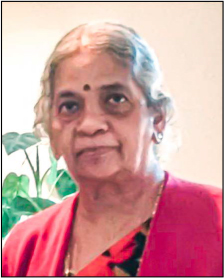The tale of an eagle near life’s end seeking advice from a long-lived crow; and Alexander the Great’s quest for a fountain of youth
BY DR. LALITA KUPPUSWAMY

The desire to live forever has existed in humanity since the dawn of civilization. A venerable poem sheds light on this subject. An eagle became sorrowful when he grew old and his youth had faded. He flew to another land to find some elixir rare and wonderful to ease his mortal sickness. There, far below, a flock of sheep grazing in the pasture, seeing the eagle, were startled and bleated loudly. Their fearful shepherd ran away, letting all the sheep scatter. The old eagle settled on a tree where a raven was also perched. The raven subjugated himself to the eagle, who shared with him his plight.
The eagle spoke, “Alas, what is this life to me but a bubble upon waters, my pomp and show gone? Yet, here you remain, black raven, who escaped my father’s father’s chase with cunningness. O filthy crow, what is the source of your longevity? You seem the same as you ever were, while my life is fading. Please unfold the secret.”
Thereupon the raven invited the eagle for a feast where he could eat things sweet and rare. The raven took the eagle to a dung hill, strewn with spoiled food and meat covered with flies. A horrible stench spread far and wide. The spot was so disgusting, the eagle could not sit there at all.
The raven shared that such filth and decay were the secret of his great longevity; whereas the eagle had passed his royal life in the sky, fresh air, with every creature obedient to his command, with the breast of partridge, quail and pheasant as warm and succulent meals. Now, if he seeks such longevity, he should fall upon the base decaying carrion and learn from a raven so disgusting.
The eagle sprang to attention, telling the raven, “Unworthy I am to share your wonderful hospitality. I welcome my fate to die in heaven’s zenith. Death I await! I could never live on such dirty things.” The king of birds then flew, hovering in the topmost skies, with freedom limitless, abandoning his fanciful quest.
In Hindu literature and in daily life, the crow is associated with Yama, the God of Death. Food offerings are given to crows in funeral rites as symbolic gifts to the departed. It is narrated in the Puranas that once when the Gods were attacked by a demon, Lord Yama assumed the form of a crow and escaped. So Yama conferred the boon of longevity on the crow.
Crow wisdom on immortality is the heart of another interesting story. Alexander the Great, realizing the body is perishable, sought an elixir that would make him immortal. He came across a sage who had neither attraction to riches nor fear of dying and to him expressed his desire for immortality. The sage told him about a secret cave with an eternal fountain whose water would free him from death. Alexander reached the cave. The spring water was pure and attractive. As he bent down to drink, he heard a voice from a crow who warned him thus, “Wait! Don’t drink the water. Long, long ago I imbibed and have been sad ever since, sitting here for centuries. I am fed up with this life and I want to die. But death does not approach. Whatever I wanted to know, I have learned, and now nothing remains to be known. Formerly I had many bird friends and I was their king. All have died but I am alive and so alone. Therefore, O great one, before drinking this water, ponder if you would like to become miserable and hopeless like me.” Hearing that sobering advice, the king renounced the water and returned to his kingdom.
If he had meditated over the matter properly, Alexander would have understood the truth. He would have realized that the body made up of matter is perishable, and the consciousness which imparts life to that body is imperishable. To realize this, there is no need to find a cave with a fountain of youth. The cave is your spiritual heart, which is the fountain-source of true immortality.
It is daily seen that whoever is born or created—whether man or plant, animal or inanimate pot—perishes one day. This is the law of nature. All religions formulate values and ethical codes for leading a happy, peaceful life, pointing out that the immortal soul in the form of consciousness exists inside the physical body. Without proper understanding, man aspires for physical immortality, which is against the law of nature.
The real import, as enshrined in Vedic mantras, is that as long as we live, we should have a healthy life with healthy organs, dedicating ourselves to the welfare of humanity, leading a worthy life memorable to ourselves and to others.
Life is a blessing and a precious gift from the Almighty. Life itself is so beautiful and has so many secrets to unfold before us, with its canvas of rich, vast, varied, novel and beautiful flora and fauna to learn from. When we find joy in life and nature around us, slowly we will look for something beyond physicality. We read sermons in stones, books in brooks, songs in springs. We find joy and love everywhere. Flora, fauna, nature and human world, all will have a new coloring to us. The spiritual process becomes a natural process of growth for us. This is the goal for which our life here is intended.
Dr. Lalita Kuppuswamy is a retired Associate Professor of Sanskrit from University of Delhi. See: lalitakuppuswamy.blogspot.com
